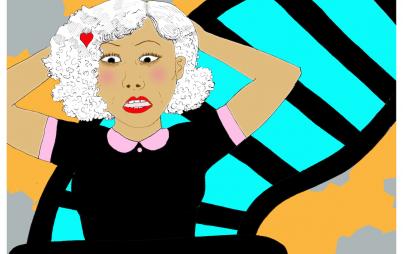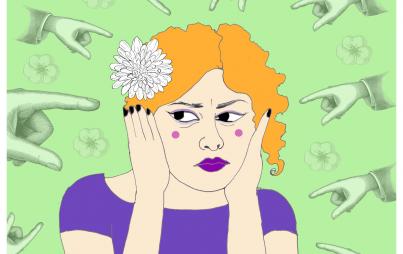
Loving someone really isn’t a good enough reason to stay in a relationship you know isn’t working.
This article first appeared on SHESAID and has been republished with permission.
Two years ago this month, I was finally ending a relationship I’d known I needed to end for a very long time.
Time is a funny thing — on the one hand, it’s hard to believe it was only two years ago. It feels like a very, very long time ago that I was stuck in that toxic relationship. On the other hand, when I was in the thick of it, I thought I’d never get out. Time felt endless.
Why did I stay in that relationship so long?
Besides the fact that he was abusive — that I was actually afraid to leave — I suppose it was because I thought I loved him. And as long as I loved him, shouldn’t I try to work things out? I’d already left my husband of 10 years, still loving him, but unable to overcome our differences, and I was reluctant to throw in the towel on my new relationship.
But I’m certainly not the only one who’s lingered too long in a bad relationship. Plenty of people are stuck in dead-end unions, seemingly unable to leave. These relationships might be be abusive; they might just be two people who have outgrown each other, or who were never a good match from the start. It’s hard to label a relationship ‘good’ or ‘bad’ — usually, there are elements of both.
When we finally end these relationships and gain the perspective that comes with distance, we’re usually baffled at ourselves.
What took so long?, we think.
Often, it boils down to the idea of love. If we love someone, we feel we should stay. If we don’t, we should leave. But what is ‘love’ supposed to mean, anyway? Is it a feeling, or an action? I always thought love was something you felt, but as I got older, I’ve learnt it’s really not about feelings at all. It’s about actively loving someone – love as a verb. That means listening to them, caring for them, showing up for them, making them feel supported and special.
We’ve all heard that relationships aren’t supposed to be easy. We’re supposed to work at them. (Here are 10 things I learned while I was working on mine.) But how hard are we supposed to work? What does it do to us to stay in dead-end relationships?
And why are we drawn to them in the first place?
I asked Licensed Marriage & Family Therapist Associate (LMFTA) Melody Li, who counsels couples in her private practice in Austin, Texas, to shed some light on these questions. She said that often, people stay in dead end relationships because they’re repeating comfortable or familiar patterns.
“People are drawn to toxic relationships for a variety of reasons,” explains Li.
“One common, and often subconscious, reason is the partners are simply repeating toxic patterns they saw growing up in their families. To them, that’s the norm and they don’t have another ‘blueprint’ for healthy relationships.”
We stay, says Li, because we’re overly optimistic that things will change, because we’re invested in the relationship — we have children, our finances are entwined — or because, “the idea of change is overwhelming.”
Another reason we stay is not trusting ourselves.
“In situations when one partner is gaslighting the other, the partner on the receiving end may begin to question one’s sanity or sense of reality,” says Li.
In other words, you might think you love your SO, but you’ve lost all sense of perspective, because he’s messing with your head.
“If the relationship is emotionally abusive, one or both partners may experience a decline in self-esteem and self worth, and also feelings of anxiety and depression.“
So, how do we know whether a relationship is worth sticking around and fixing, or whether love isn’t enough, and we should jump ship?
“The first step to assessing whether or not a relationship is sustainable or healthy is to honestly acknowledge any early signs of emotional abuse. Partners that desire to work on the relationship need to be able to set healthy boundaries and advocate for themselves when boundaries are crossed,” advises Li.
And red flags that mean it’s time to get out include isolation (when your partner tries to separate you from friends, family, and other support people), losing your sense of self, blaming yourself and feeling bad about yourself, and a sense of hopelessness. And what about love?
“Loving someone well begins with knowing and loving oneself. Both partners have to take accountability for personal growth and change. One partner simply can’t drag the other along,” says Li.
In other words, loving someone really isn’t a good enough reason to stay in a relationship you know isn’t working. Take it from me; I learned the hard way.
More from SHESAID:








